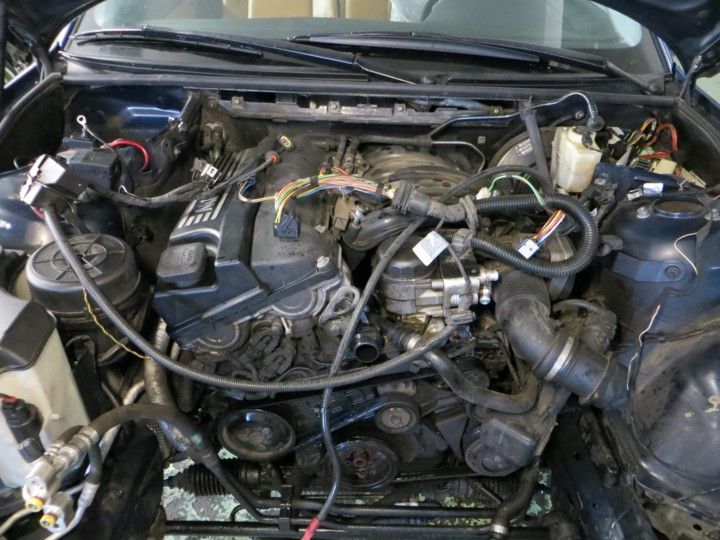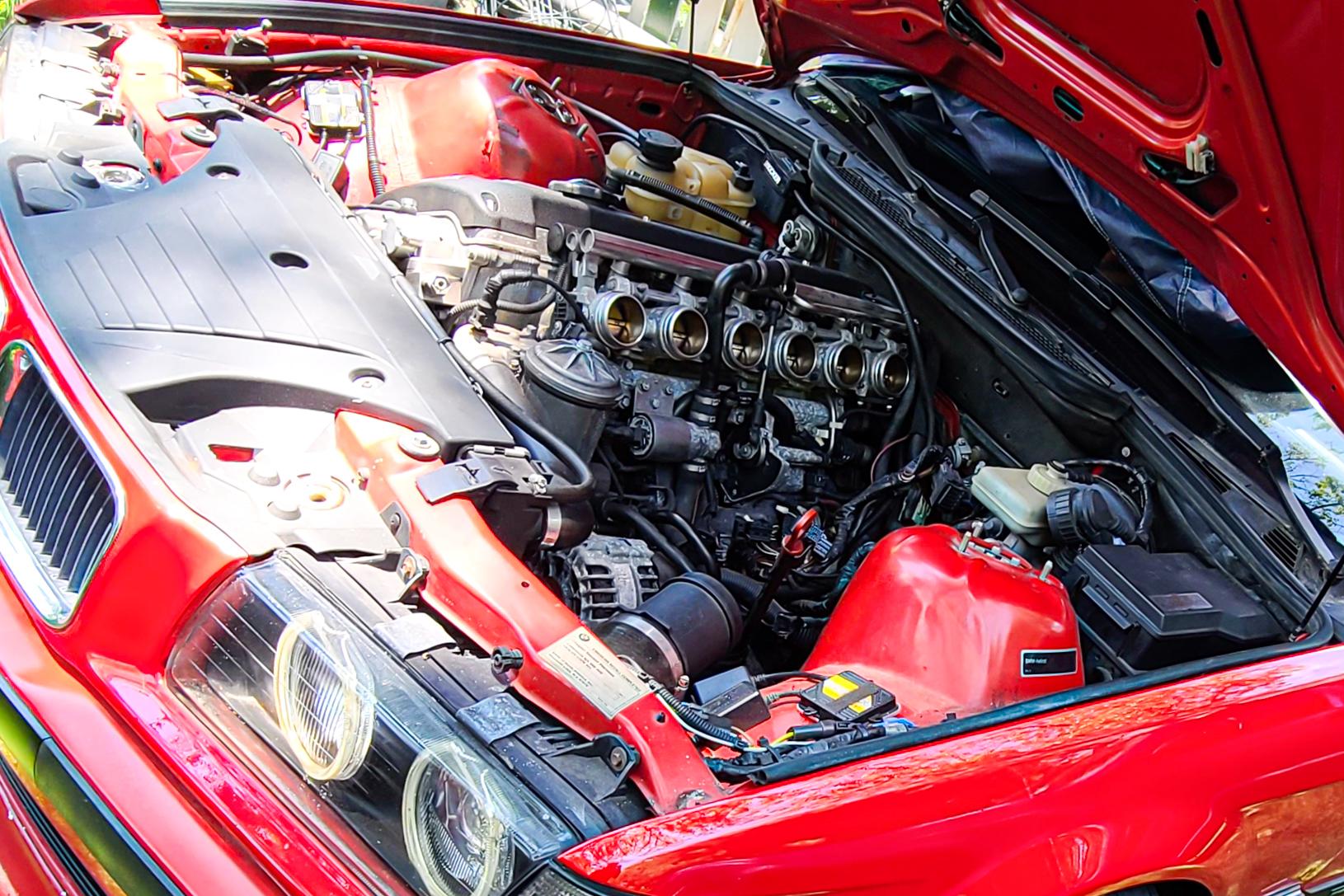Updating Your BMW 318ti: Leading Mods and Enhancements
Updating Your BMW 318ti: Leading Mods and Enhancements
Blog Article
Key Functions to Look for When Buying an Engine for Automotive Applications
When considering the acquisition of an engine for automotive applications, a number of vital attributes necessitate careful evaluation to make certain optimum efficiency and performance. From power and efficiency capacities to fuel adherence, performance, and sturdiness to exhausts requirements, each element plays a critical duty in establishing the engine's viability for particular auto requirements. Furthermore, cost-effectiveness continues to be an essential element in the decision-making process, stabilizing quality with economic considerations. These features jointly add to the general performance and dependability of the engine, affecting the driving experience and long-term satisfaction of the customer.
Power and Performance
When selecting an automobile engine, purchasers focus on power and performance to make sure optimum driving experience and effectiveness. The power outcome of an engine, commonly determined in horsepower (HP) or kilowatts (kW), dictates the acceleration, leading rate, and general capabilities of a vehicle. Higher power rankings usually lead to quicker velocity and better performance, specifically throughout overtaking or bring heavy loads. Efficiency, on the other hand, includes a wider spectrum of attributes, including gas performance, discharges, dependability, and overall driving dynamics. A well-performing engine not just provides power effectively however also runs smoothly across various rate varieties and driving conditions.
Purchasers typically consider the engine's torque result alongside its power ranking. Torque, determined in pound-feet (lb-ft) or Newton-meters (Nm), shows the engine's rotational force, affecting the car's capacity to tow, climb inclines, and increase from dead stop. An equilibrium between power and torque is crucial for attaining a versatile and responsive driving experience. Additionally, aspects such as engine displacement, turbocharging, and crossbreed technologies play substantial functions in improving both power and performance degrees. Ultimately, picking an engine that uses a potent mix of power and performance makes certain a effective and satisfying driving experience. bmw 318ti.
Fuel Effectiveness
Maximizing gas effectiveness is a vital factor to consider for consumers when evaluating automotive engine choices. Modern engines with features like direct fuel injection, turbocharging, and variable shutoff timing can dramatically improve fuel performance by improving burning processes and decreasing energy loss.
Sturdiness and Reliability
Achieving durable performance and reputable operation is crucial for consumers reviewing the sturdiness and integrity of automobile engines. When thinking about an engine for vehicle applications, resilience refers to the engine's capacity to hold up against wear, stress and anxiety, and severe operating problems over an extensive duration. Reliability, on the various other hand, implies that the engine can consistently do its intended feature without unanticipated break downs or failures.
Customers need to look for engines built with top quality products and precise design to ensure durability. Components such as crankshafts, pistons, and bearings need to be sturdy to take care of the engine's power output without premature wear. Furthermore, engines furnished with sophisticated air conditioning systems, efficient lubrication, and robust filtering systems have a tendency to exhibit greater degrees of reliability.
Regular maintenance and adherence to manufacturer suggestions are likewise crucial factors in preserving an engine's resilience and reliability. By adhering to upkeep schedules, using advised liquids, and attending to any type of problems promptly, customers can take full advantage of the life expectancy and performance of their automotive engines. Ultimately, prioritizing resilience and reliability in engine option can bring about a much more gratifying ownership experience with less unanticipated disruptions.
Discharges Conformity
Making sure compliance with exhausts regulations is an essential element of assessing automotive engines for eco mindful consumers. With boosting worries concerning air high quality and environmental influence, stringent emissions criteria have been established globally to lower damaging pollutants released right into the atmosphere. When buying an engine for automotive applications, it is vital to consider its exhausts compliance to lessen linked here the carbon footprint and follow lawful requirements.
Modern engines are geared up with sophisticated exhaust control modern technologies such as catalytic converters, exhaust gas recirculation (EGR) systems, and careful catalytic decrease (SCR) to reduce dangerous exhaust gases like nitrogen oxides (NOx), carbon monoxide gas (CO), and hydrocarbons (HC) These systems play an essential duty in guaranteeing that the engine fulfills the specified discharges criteria and operates within allowable restrictions.

Cost-effectiveness
When considering vehicle engine purchases, examining cost-effectiveness is critical for consumers looking for both efficiency and worth. Cost-effectiveness in engine procurement entails greater than simply the initial purchase cost. It incorporates the total expenditures connected to upkeep, gas usage, and prospective repair work over the engine's life expectancy. Choosing for an engine that provides a balance between lasting financial savings and in advance expenses can lead to considerable benefits for the customer.
Engines that are created to make the most of gas economy can lead to significant savings over time, particularly for individuals that drive often or over lengthy distances. bmw 318ti. Furthermore, thinking about the availability and price of spare parts and maintenance can contribute to the general cost-effectiveness of an engine.

Final Thought
Finally, when acquiring an engine for auto applications, it is essential to think about crucial attributes such as power and efficiency, gas resilience, dependability and effectiveness, discharges compliance, and cost-effectiveness. These elements are vital in making sure that the engine satisfies the needs of the lorry and runs properly in numerous driving conditions - bmw 318ti. Making an informed decision based upon these standards will inevitably cause a effective and successful automotive engine purchase
From power and efficiency capacities to sustain adherence, sturdiness, and performance to exhausts requirements, each aspect plays an essential duty in establishing the engine's suitability for details vehicle needs. Engines made to run on alternate gas such as electric power, crossbreed systems, or biofuels can use better fuel economic situation and lower emissions compared to traditional gas or diesel engines. Customers must carefully think about the gas effectiveness rankings and technologies included into automotive engines to make enlightened buying choices that align with their concerns for cost savings and sustainability.
When taking into consideration an engine for automotive applications, toughness refers to the engine's capacity to endure wear, stress and anxiety, and harsh operating problems over an extensive period.In final thought, when acquiring an engine for automotive applications, it is vital to take into consideration key functions such as power and efficiency, gas toughness, performance and integrity, exhausts conformity, and cost-effectiveness.
Report this page